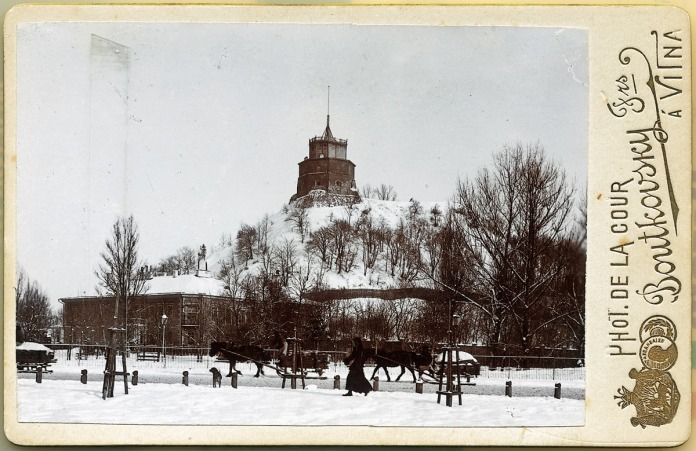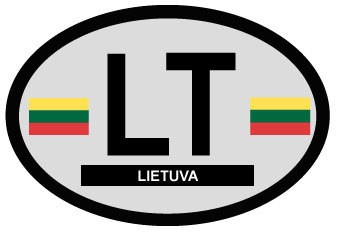 This small book written by Marielle Vitureau, journalist for Radio France Internationale and Courrier International in the Baltic states since a decade, tells the story of these people from Northern Europe. It describes the Lithuanian as dynamic, open and stubborn, committed by a rich and tragic history, from the age of the Grand Duchy of Lithuania to the Nazi and Soviet occupations. Members of the European Union since 2004, they came to the globalization, without abandoning their originality, an attachment to their roots and the pride of being still present on the world map despite their difficult history.
This small book written by Marielle Vitureau, journalist for Radio France Internationale and Courrier International in the Baltic states since a decade, tells the story of these people from Northern Europe. It describes the Lithuanian as dynamic, open and stubborn, committed by a rich and tragic history, from the age of the Grand Duchy of Lithuania to the Nazi and Soviet occupations. Members of the European Union since 2004, they came to the globalization, without abandoning their originality, an attachment to their roots and the pride of being still present on the world map despite their difficult history.
Some extracts:
“Lithuania is also deeply marked by migration, starting in the seventeenth century. Migrants, mainly for economic reasons, however, we observe since 2011, a dynamic of returns intensifies. These returns contradicts the skeptics who see these trips more like a drain than a migration. But thanks to these Lithuanians who made links during years between their country of origin and their new country, a picture of a new global society is built, where the patriotism remains a strong value. “
(Introduction)
“The Soviet Union was destroyed by rock music and jeans,” said the Czech dissident Vaclav Havel with his immense sense of catchphrases. In Lithuania, the country of the Singing Revolution, it was more than relevant. Rock music crossed Lithuania firstly with Antis, year after year, and have sapped the Communist regime in this republic, incorporated into the Soviet Union in 1944. With corrosive lyrics, the band parodied with panache the Soviet world and its vices, like the obsession for decorations applied during that time. Veterans and heroes of all kinds were weighed down under the badges stitched on their jacket. […] The name of the band was also an affront to the Soviet power. Antis has a double meaning in Lithuanian. It means “duck”, but also “disinformation”. A word chosen to protest against the brainwashing of Lithuanians for fifty years by the Soviet propaganda.”
(Le Rockeur de l’indépendance poursuit la lutte)
“Without Vilnius, city far reaches of Europe, Lithuania does not exist. Occupied by the Polishes during the interwar period, capital of a Soviet republic during the fifty years of communist occupation from 1944 to 1990, Vilnius has regained its status of capital only in 1990, when the Parliament declared its independence on March 11th. Multicultural, multiethnic, tolerant, that is how Vilnius looks like for the foreigners. A true palimpsest, narrow streets, courtyards, houses, monuments lead on the way of Lithuanians, but also and mostly Jews, Polishes and Belarusians who gave to Vilnius that reputation. Each community used to call Vilnius in his own language. In Tsarist times, from the eighteenth century to the twentieth, the Russians called the city Vilna. During the interwar period, it became Polish: Wilno. Until their extermination by the Nazis, the majority of the city residents were Jews. This great literary and intellectual center was also known as the Yiddish name, Vilne.”
(Une capitale en cache une autre)

“Is globalization a danger to Lithuania?
This process is very ambivalent and every coin has another side. The positive side of globalization is the fact that a small country like Lithuania became visible and accessible, precisely because of globalization and social networks. We are visible, known, and we can travel. The most negative side is caused by the global social mobility. A stronger economy still attracts talents from one country to a weaker economy. It attracts business people, the middle class and intellectuals. These open doors have created some problem. By the way, Tomas Venclova said, that from this point of view, European Union could represent a bigger danger to Lithuania than was the Soviet Union, because the first one is free and without borders. So there is no other solution than creating a prosperous and attractive country. “
(interview of Leonidas Donskis, philosopher and teacher)
